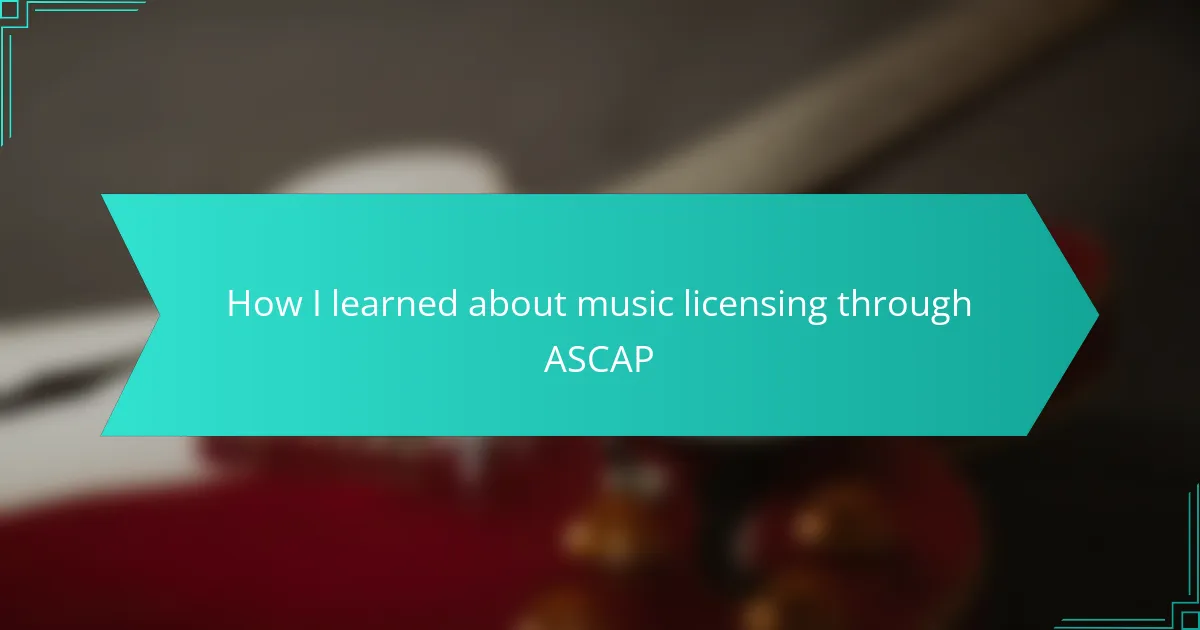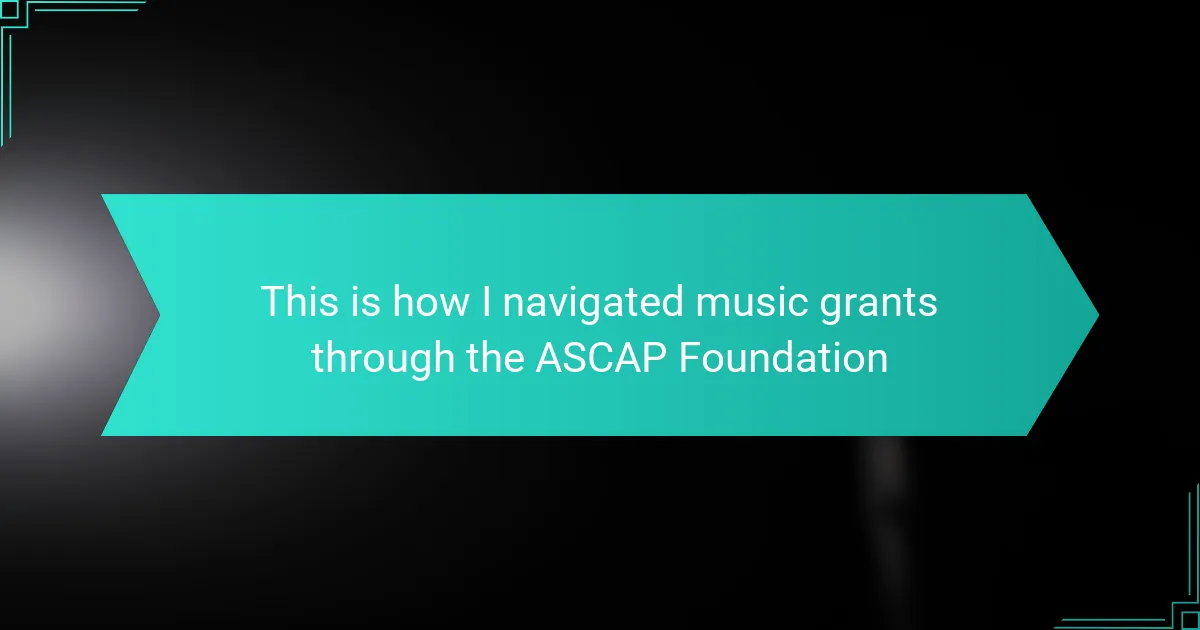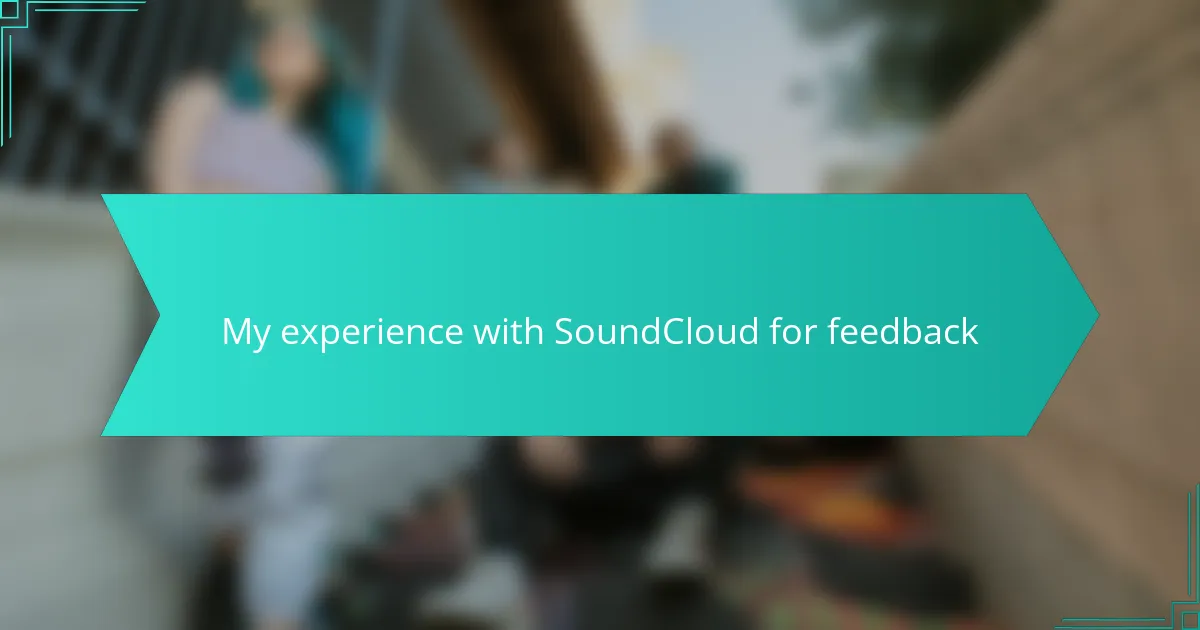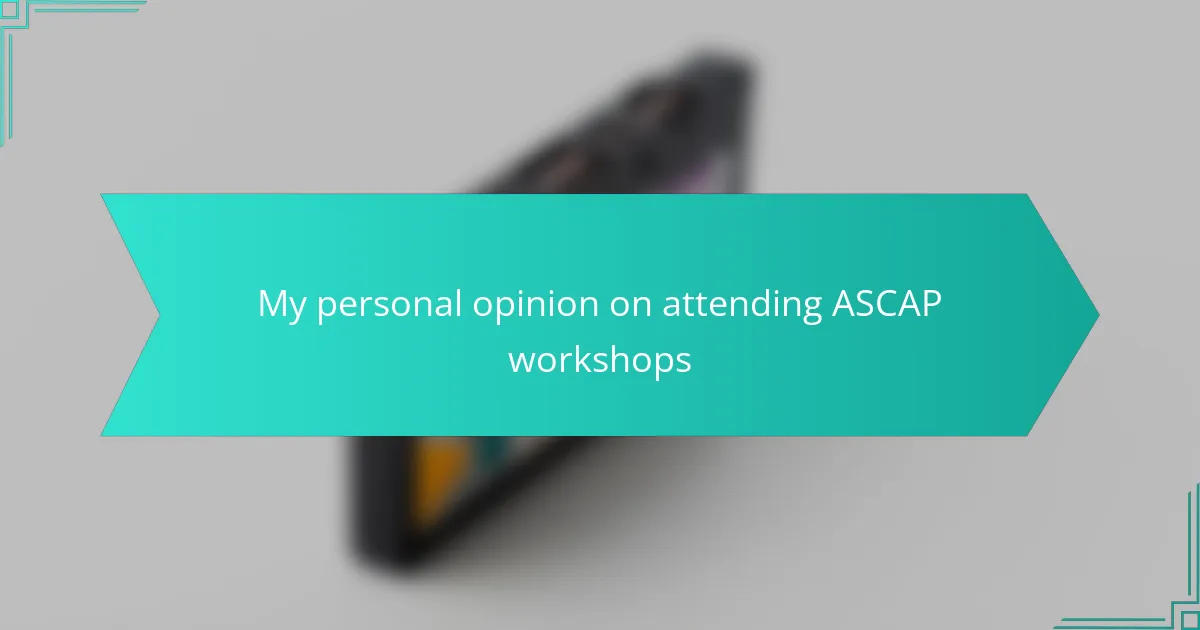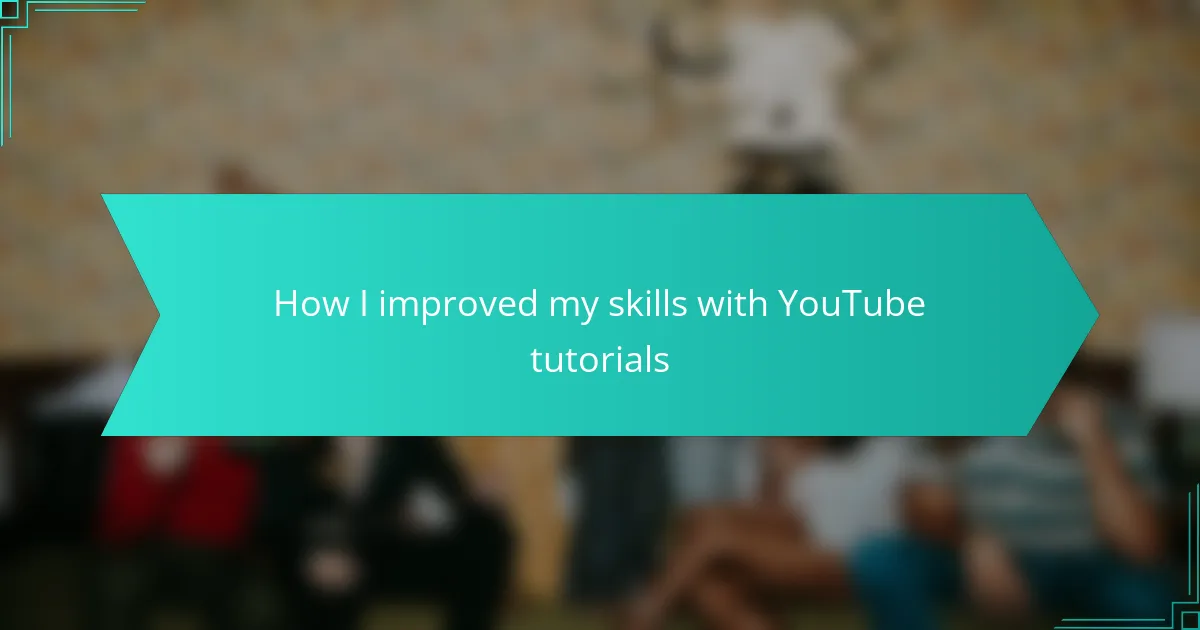Key takeaways
- Understanding music licensing is essential for protecting creative work and ensuring fair compensation for artists.
- Organizations like ASCAP and BMI provide crucial resources and support for musicians in managing royalties and licensing agreements.
- Engaging with educational resources, such as webinars and workshops, enhances knowledge and networking opportunities within the music industry.
- Proper licensing safeguards artists’ rights and opens doors to potential professional opportunities and collaborations.
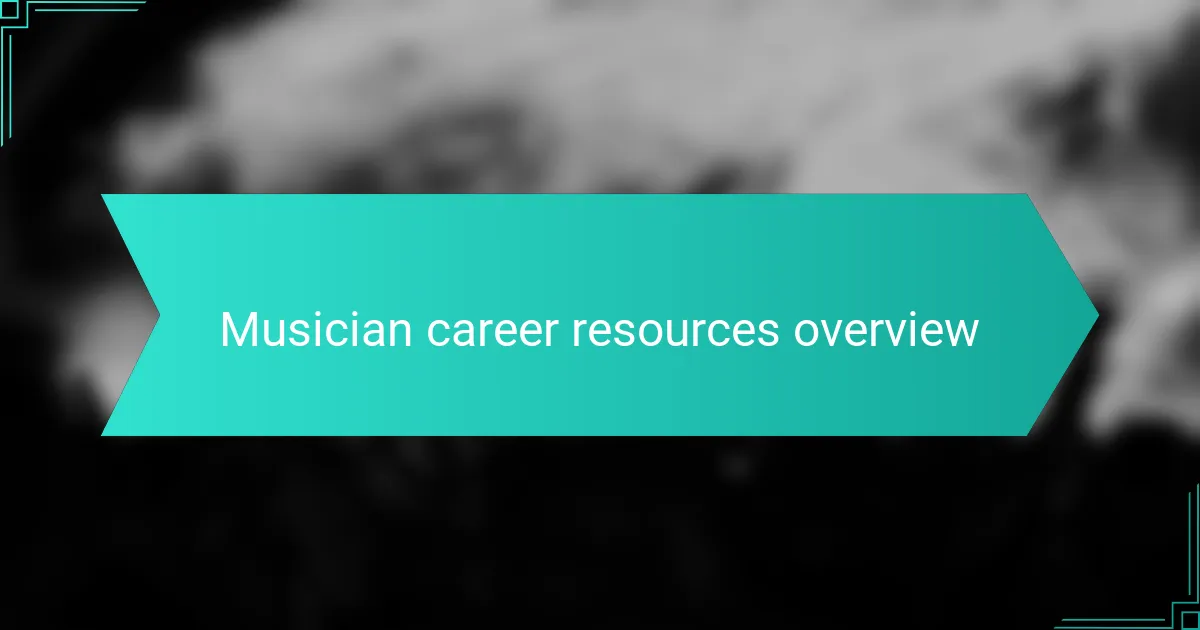
Musician career resources overview
As a musician, navigating the myriad resources available can often feel overwhelming. However, I’ve always believed that the right tools can significantly shape your career. My journey with ASCAP taught me the importance of understanding music licensing, which ultimately empowered me to protect my work and make informed decisions.
Here’s a quick overview of some essential musician career resources that can guide you along your path:
- ASCAP: Offers licensing information and resources for songwriters and composers.
- BMI: Provides performance rights organization services similar to ASCAP, helping musicians secure their royalties.
- CD Baby: A distribution service that helps artists get their music on various platforms, with helpful insights on sales and marketing.
- SoundExchange: Focuses on collecting digital performance royalties for artists and labels from non-interactive streaming.
- Musician’s Union: A support network for musicians, offering advocacy, legal advice, and various member benefits.
Having access to these resources not only broadens your understanding but also builds a strong foundation for a successful music career.
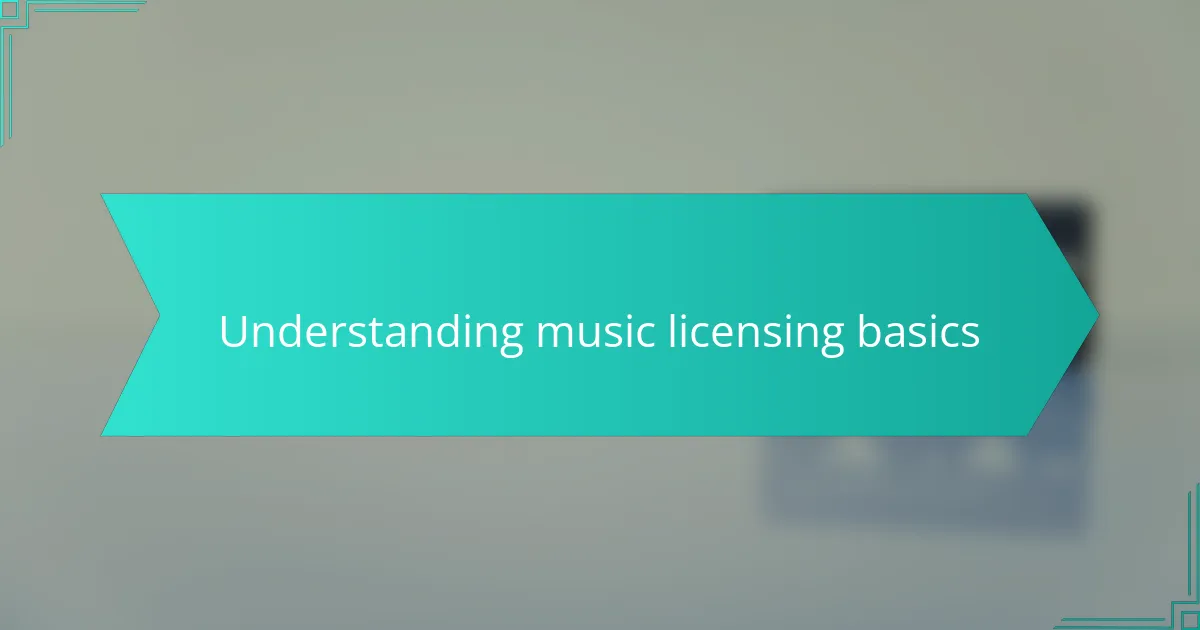
Understanding music licensing basics
Understanding music licensing is crucial for any musician looking to protect their creative work. I remember the first time I delved into the details; it was like opening a door to a whole new world. Licensing ensures that when my music is played, whether on radio or in a commercial, I can receive fair compensation for my art.
At its core, music licensing involves legally giving permission for someone to use your music. I found it fascinating to realize that without proper licensing, my songs could be used without consent, potentially diluting their value. It raises an important question: how can we trust others to honor our craft if we don’t set the right parameters?
There are various types of music licenses, such as mechanical licenses for physical copies and sync licenses for placing music in film and TV. Each serves a specific purpose, and understanding these distinctions can feel overwhelming. But through my experience with ASCAP, I learned that having this knowledge not only protects my rights as an artist but also allows me to seize new opportunities. After all, who wouldn’t want to see their work resonate on a larger scale?
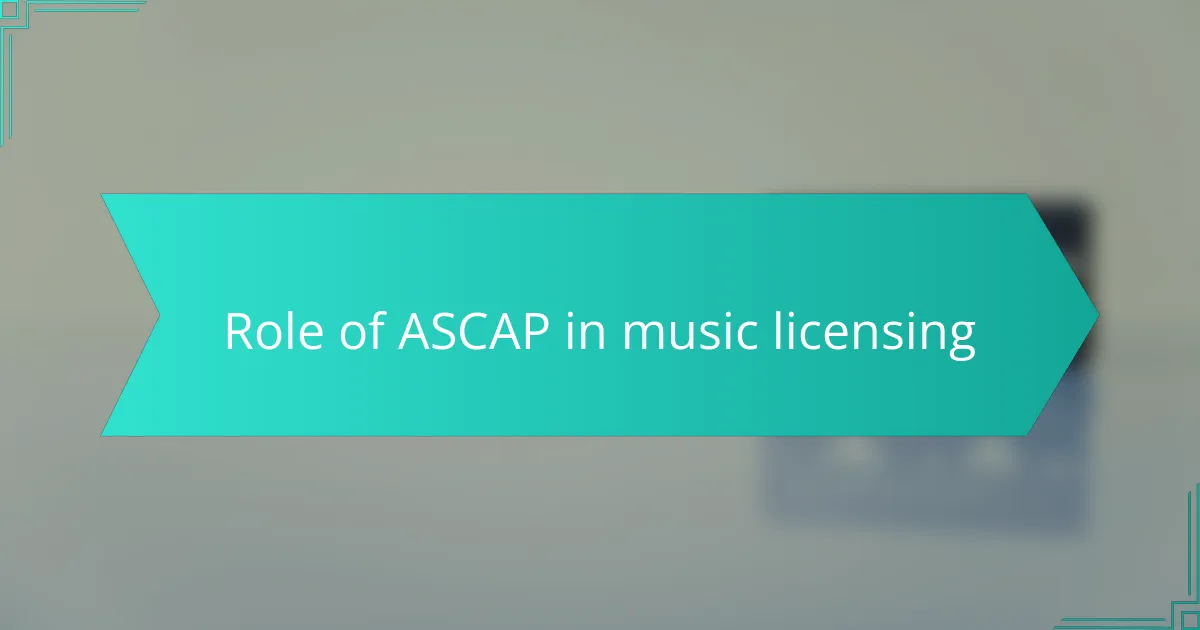
Role of ASCAP in music licensing
ASCAP plays a critical role in the music licensing landscape by ensuring that songwriters and composers are fairly compensated for their work. I remember my early days as an aspiring musician, using ASCAP’s resources to understand how royalties work. The moment I received my first royalty statement, I felt a mix of excitement and validation that my music had reached listeners and generated income.
The organization not only collects licensing fees from businesses that use music but also distributes these funds to its members. This system gives artists peace of mind, knowing their creations are protected and that they can focus on what they love—making music. Here are some key roles ASCAP fulfills in music licensing:
- Monitors public performances of music to ensure songwriters get paid.
- Acts as a liaison between music creators and those who wish to use their work.
- Provides educational resources and networking opportunities for members to enhance their careers.
- Facilitates fair licensing agreements, ensuring transparency in how royalties are calculated and distributed.
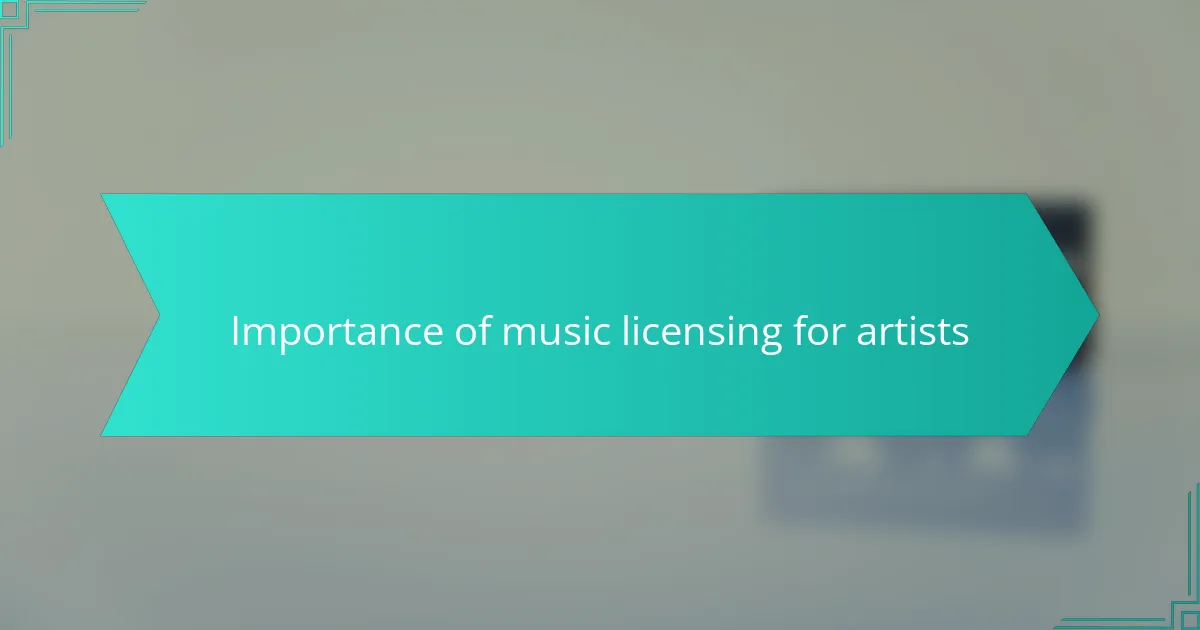
Importance of music licensing for artists
Music licensing is vital for artists because it protects their work and ensures they receive compensation when their music is used. I remember the first time I learned about the potential loss when a friend’s track was used in a commercial without proper licensing. It was a real wake-up call, showing me that understanding music licensing is not just about rights; it’s about securing the livelihood of our creative endeavors.
Without music licensing, artists risk having their work used without permission, which can lead to frustration and lost income. I’ve seen many talented musicians struggle financially because they weren’t aware of how to properly license their music. It’s about creating a safety net that safeguards our creativity and hard work.
Here’s a comparison table that outlines the benefits of music licensing versus the risks of operating without it:
| Music Licensing | No Music Licensing |
|---|---|
| Protects your rights | Loss of control over your work |
| Ensures compensation for use | No income from your music |
| Attracts professional opportunities | Limits collaboration potential |
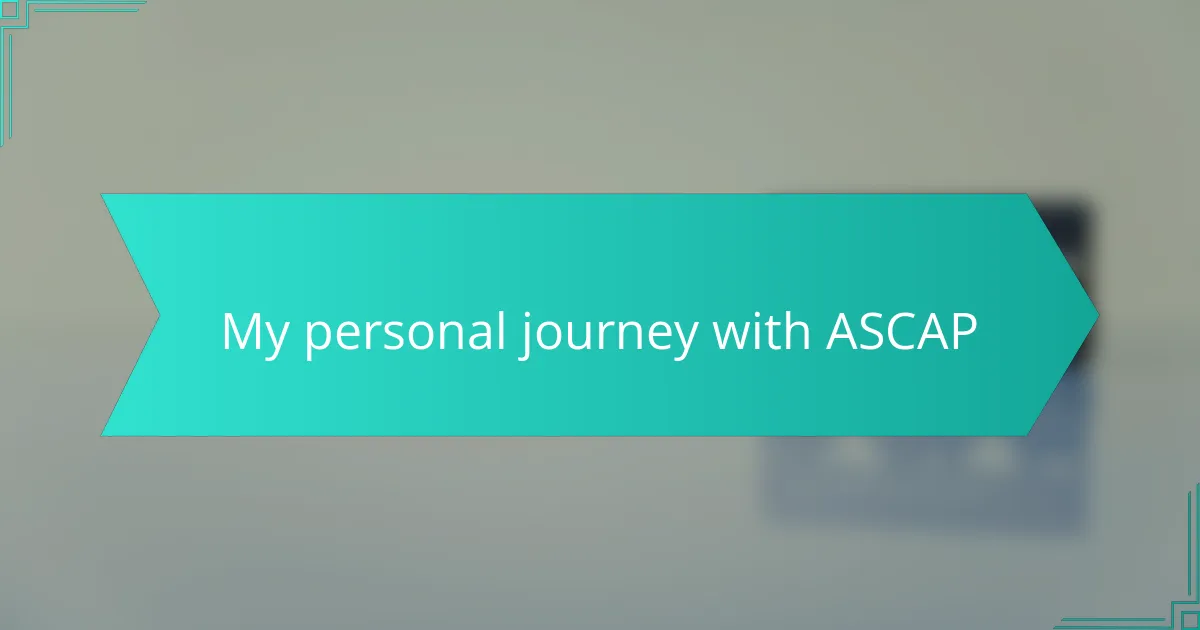
My personal journey with ASCAP
Navigating my journey with ASCAP was nothing short of enlightening. I recall the day I signed up; it felt like I was finally taking ownership of my music. I dove into the resources available, eager to learn about royalties and licensing. The more I explored, the clearer it became that understanding these elements was crucial for my growth as a musician.
Each interaction with ASCAP revealed new layers of the music business I never knew existed. I remember attending one of their workshops, where I connected with fellow artists who shared their licensing stories. It was inspiring to hear how their knowledge helped them secure deals and earn revenue. I couldn’t help but wonder: how many opportunities might I have missed without this insight? Through ASCAP, I began to grasp how essential it was to protect my artistry.
As I grew in my musical career, ASCAP became a resource I constantly leaned on. Applying the lessons I learned helped me negotiate better terms for my music, ensuring that it reached audiences while I was compensated fairly. I felt empowered, knowing that I was taking proactive steps to protect my creative labor. It was a transformative experience that reinforced my passion for music and my determination to thrive in the industry.
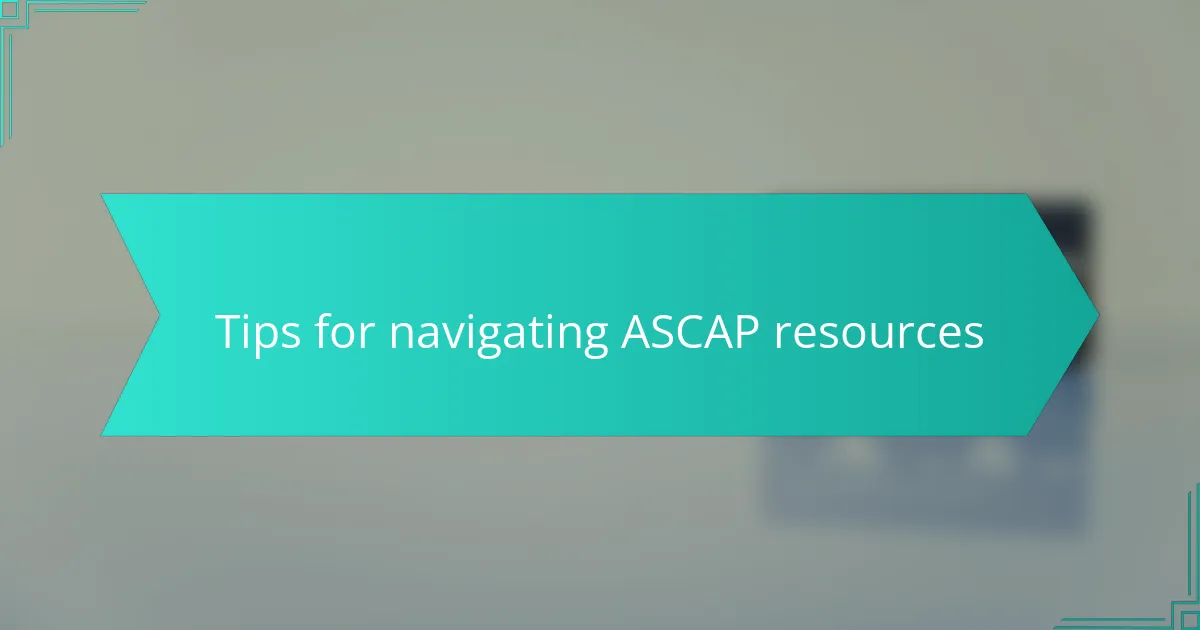
Tips for navigating ASCAP resources
Navigating ASCAP resources can be an overwhelming task, but I found that taking small, manageable steps made it easier to understand. When I first started exploring their site, I dedicated time to familiarize myself with their online portal. I discovered that using the search function helped me quickly find specific topics, like music licensing and royalty distributions, which can sometimes feel like a maze.
Another tip is to take advantage of ASCAP’s webinars and workshops. I remember attending my first session and being surprised by how much I learned in just an hour. It was a game-changer for me to hear industry experts share their experiences and tips directly. Engaging with their community through forums can also provide invaluable support and insights from fellow musicians navigating similar paths.
| Resource | Value |
|---|---|
| Online Portal | Easily manage your profile and access essential documents. |
| Webinars | In-depth learning from industry professionals. |
| Forums | Connect with other musicians for tips and experiences. |
